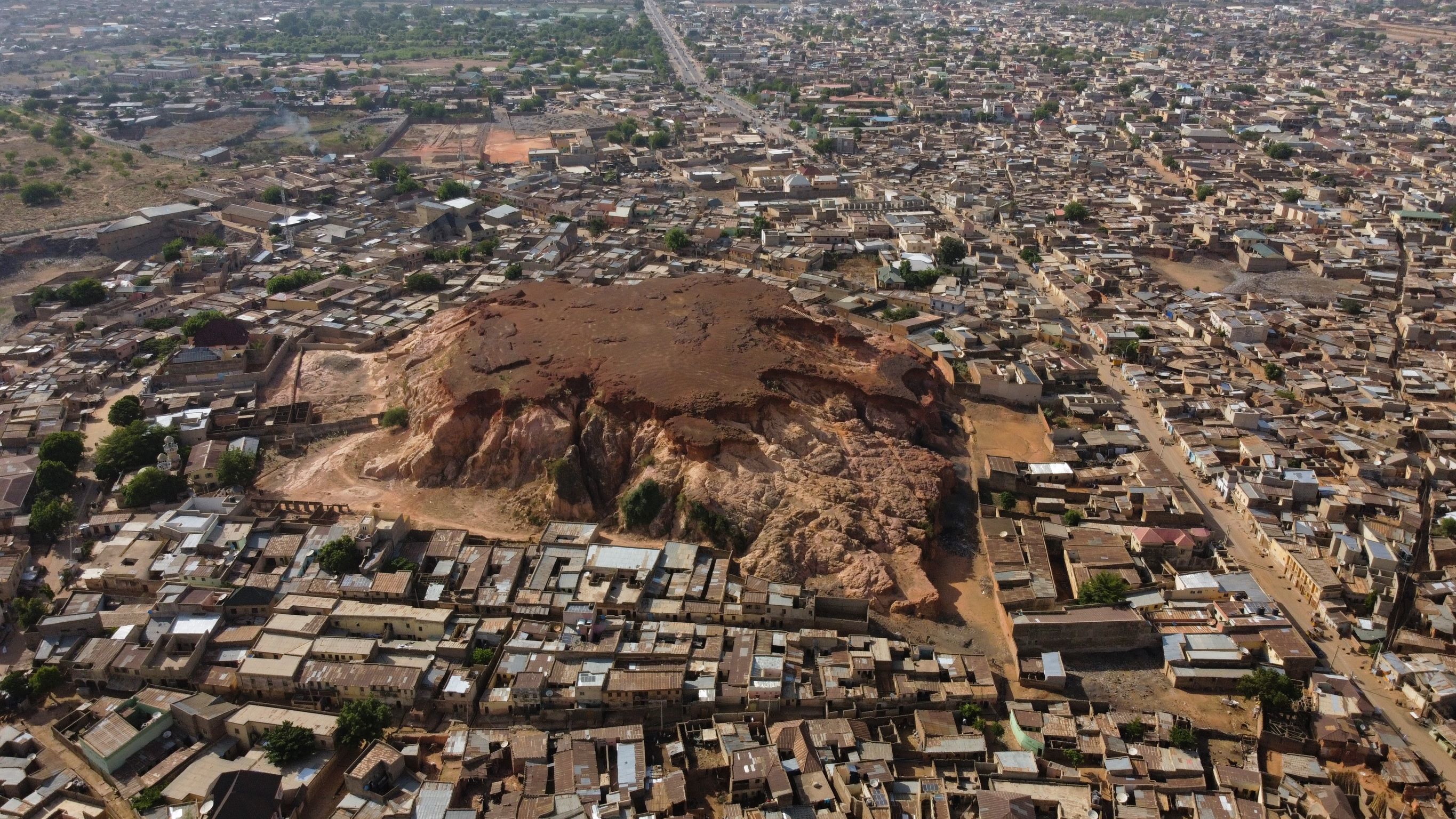Dala Hill on:
[Wikipedia]
[Google]
[Amazon]

 Dalla Hill (also spelled Dala) is a hill in
Dalla Hill (also spelled Dala) is a hill in

 Dalla Hill (also spelled Dala) is a hill in
Dalla Hill (also spelled Dala) is a hill in Kano
Kano may refer to:
Places
*Kano State, a state in Northern Nigeria
* Kano (city), a city in Nigeria, and the capital of Kano State
**Kingdom of Kano, a Hausa kingdom between the 10th and 14th centuries
**Sultanate of Kano, a Hausa kingdom between ...
, Kano State
Kano State (Hausa: ''Jihar Kano''جىِهَر كَنوُ) (Fula: Leydi Kano 𞤤𞤫𞤴𞤣𞤭 𞤳𞤢𞤲𞤮𞥅 ) is one of the 36 states of Nigeria
Nigeria ( ), , ig, Naìjíríyà, yo, Nàìjíríà, pcm, Naijá , ff, Naajee ...
, Nigeria
Nigeria ( ), , ig, Naìjíríyà, yo, Nàìjíríà, pcm, Naijá , ff, Naajeeriya, kcg, Naijeriya officially the Federal Republic of Nigeria, is a country in West Africa. It is situated between the Sahel to the north and the Gulf o ...
. It is high and contains a stairway with 101 steps to the bottom to top.
In the seventh century, the hill was the site of a community that engaged in iron-working. It was called the Tsumburbura shrine from 700 CE up until the credo's collapse as a result of Islamic dominance later in the 13th century. Kano was originally known as Dala, after the hill.
History
The hill is a crucial part of the history of the city ofKano
Kano may refer to:
Places
*Kano State, a state in Northern Nigeria
* Kano (city), a city in Nigeria, and the capital of Kano State
**Kingdom of Kano, a Hausa kingdom between the 10th and 14th centuries
**Sultanate of Kano, a Hausa kingdom between ...
. It is believed that Barbushe, a man of great stature and might who hunted elephants with his stick and carried them on his back to the hill, resided there hundreds of years ago. It said that there, Barbushe built a shrine to worship a deity called Tsumburbura who is believed to have been worshipped by the Hausa
Hausa may refer to:
* Hausa people, an ethnic group of West Africa
* Hausa language, spoken in West Africa
* Hausa Kingdoms, a historical collection of Hausa city-states
* Hausa (horse) or Dongola horse, an African breed of riding horse
See also
...
people at the time before the arrival of Islam. The only person that was allowed access to the shrine was Barbushe; anyone that entered it without his permission is said to have died tragically. Barbushe never descended from Dalla except on the two days of Idi. When the days drew near, the people that lived in the vicinity of the hill came from all over with animals to sacrifice with the hopes of gaining favor with Tsumburbura.
This also has ties to the Bayajidda
Bayajidda ( Hausa: Bàyā̀jiddà) was, according to the legends surrounding most West African states before the 19th century, the founder of the Hausa states.
Most accounts say that Bayajidda came from Baghdad. Bayajidda came first to Borno wher ...
legend in Hausa
Hausa may refer to:
* Hausa people, an ethnic group of West Africa
* Hausa language, spoken in West Africa
* Hausa Kingdoms, a historical collection of Hausa city-states
* Hausa (horse) or Dongola horse, an African breed of riding horse
See also
...
folklore which is an account of a stranger believed to have been from Baghdad
Baghdad (; ar, بَغْدَاد , ) is the capital of Iraq and the second-largest city in the Arab world after Cairo. It is located on the Tigris near the ruins of the ancient city of Babylon and the Sassanid Persian capital of Ctesiphon. I ...
, who arrived in the future Hausaland
The Hausa ( autonyms for singular: Bahaushe ( m), Bahaushiya ( f); plural: Hausawa and general: Hausa; exonyms: Ausa; Ajami: ) are the largest native ethnic group in Africa. They speak the Hausa language, which is the second most spoken languag ...
, married into an existing ruling family, and fathered the rulers of the seven city-states which were to make up that elastic, but successful confederation known as the Hausa Bakwai
The Hausa Kingdoms, also known as Hausa Kingdom or Hausaland, was a collection of states started by the Hausa people, situated between the Niger River and Lake Chad (modern day northern Nigeria). Hausaland lay between the Western Sudanic kingdoms ...
. Despite the hill being a symbol of paganism and idol worship, it still kept its significance after the arrival of Islam. The power of the sacred hill was so fixed in early Hausa
Hausa may refer to:
* Hausa people, an ethnic group of West Africa
* Hausa language, spoken in West Africa
* Hausa Kingdoms, a historical collection of Hausa city-states
* Hausa (horse) or Dongola horse, an African breed of riding horse
See also
...
tradition that as late as 1819, the second Fulani
The Fula, Fulani, or Fulɓe people ( ff, Fulɓe, ; french: Peul, links=no; ha, Fulani or Hilani; pt, Fula, links=no; wo, Pël; bm, Fulaw) are one of the largest ethnic groups in the Sahel and West Africa, widely dispersed across the region. ...
Muslim ruler used to the hill as a spiritual summit where he would combine his prayers of forty days and perform them at the top of the hill, thus gathering assurance of victory in war. The old "pagan" center energized prayers sent up to Allah. Dalla hill was the center of power around which all rituals revolved. There, the ancestor figure, leader of the race, first lived. There, he had his wives and seven children. It was there that the first event took place, and it was to Dalla that the descendants must return again and again.
References
Kano Hills of Nigeria {{kano-geo-stub